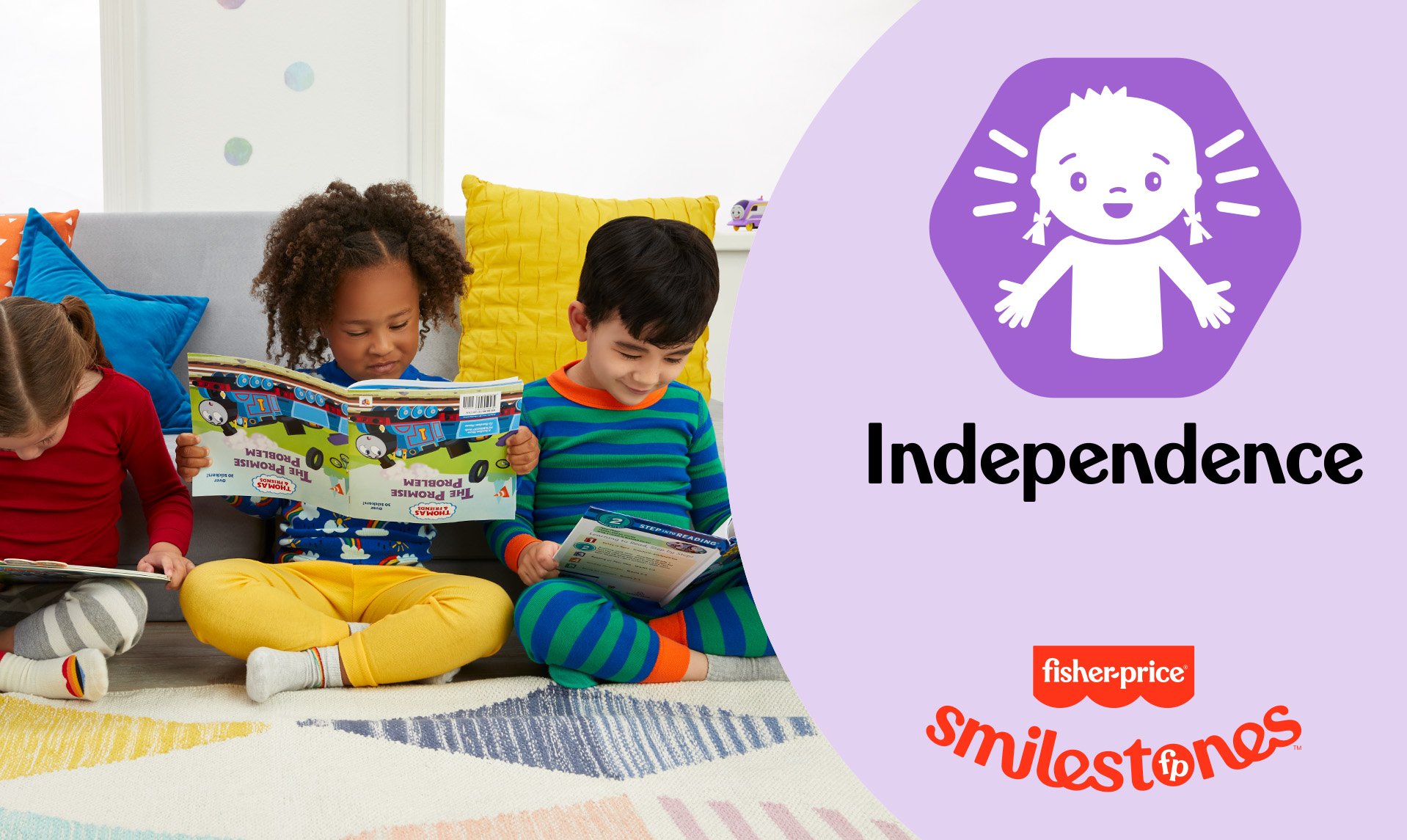Encouraging Independence in Preschoolers
July 21, 2023

If you have a 3-to-5-year-old, school readiness and your kiddo’s ability to be independent is something you’re probably thinking about. You might already be hearing “I can do it!” or something similar on a regular basis – and they love being able to do things themselves. If your little one isn’t just yet, it’s likely because their little bodies aren’t ready quite yet and that’s ok too. This skill isn’t just about completing a final task, it’s all about the process. Kids need to work through not only the skills to complete the task, but to have the confidence and autonomy to try and risk failing at something. Sometimes, just trying the task on their own is the goal.
Skills like getting ready to go outside, opening a lunch box or snack packages, or even asking questions when they’re unsure of what to do are all important independence skills for preschoolers, and you can help them work on them over time.

How do you know when they’re ready to try?
Typically, around 2 years, toddlers are engaged in activities that genuinely interest them – stacking every toy around your house into towers or creating pillow forts. They’re feeling empowered because they’re starting to play on their own and seeing themselves as their own little person. Soon enough, they’ll even start to vocalize that, “I do this,” or “I don’t do this.”
Around 3 years, they’ll begin to feel proud of themselves for completing tasks. They’ll also (sometimes very passionately) insist on doing things independently when a grown-up tries to assist. After that 3 year mark, they’ll continue to work on their skills, learning from their mistakes, problem-solving and becoming more confident.
From ages 4 to 5, kids start to become interested and confident in taking risks – meaning they are excited to see what happens when they try something new or challenging. This process helps them better understand consequences, and cope with unpredictability.

Practicing independence: the basics
So how can you help your little big kid flex their independence muscles? The good thing is that it doesn’t need to be huge changes, some of the best ways to practice these skills can easily be worked into your every-day activities.

1. Start with your routines.
If you’re leaving the house, let them get their shoes on or their coat. If you’re getting ready for bed, let them put the toothpaste on their toothbrush. You may need to assist a little bit here and there if they’re still learning how to do those things, but if they learn that the same thing is expected of them at certain times of day, they’ll get the hang of it and start doing it on their own.

2. Practice upcoming events.
If your kiddo is headed to preschool or camp, you can practice opening their lunch box or snack packages ahead of time. That way, when they go to eat lunch without you (deep breath…they can do it!), they won’t have to wait for help from a grown-up.

3. Be their #1 fan.
Offer praise and be enthusiastic. It’s important for your preschooler to know that you see their efforts and hard work at doing things independently. This builds their confidence and encourages them to keep trying and working at this skill.
Keep in mind…




Parent check-in
How are you feeling?
It’s understandable to feel stressed out when your kiddo is exhibiting their independence. Things take them a bit longer to do, sometimes it’s a little messy, and sometimes it’s just hard to let them take that risk. Try to think about mastering independence skills as more of a journey, there will be messes, but there will be so many moments to celebrate too!
Gentle reminder: If you ever have concerns about your child’s development, trust your gut and reach out to your pediatrician.”

Bringing a smile to milestones.
Say hello to happier parenting. We’re here to help you celebrate the little victories, let go of expectations, and pick up more positivity. Because after more than 90 years of helping families, we’ve learned that development happens naturally when fun leads the way.
Learn More








































